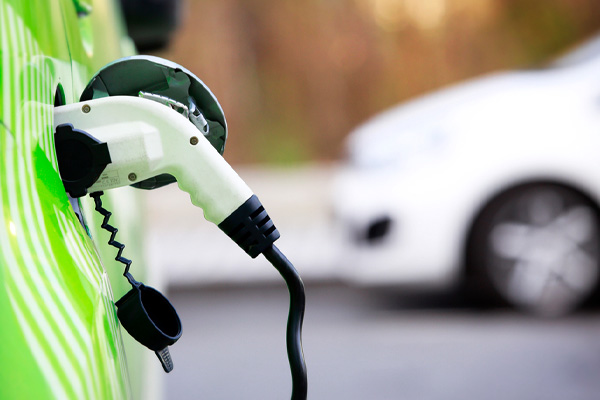Contents
- 1 What Is Electrification?
- 1.1 Is Electricity Truly A Source Of Clean Energy?
- 1.2 The Unspoken Myth Of Electric Cars
- 1.3 Electricity Conversion: Homeowners Should Prepare To Pay A Small Fortune To Make The Switch
- 1.4 Biofuels/Bioheat®: Reduce Carbon Emissions Immediately For A Fraction Of The Cost
- 1.5 Reduce Greenhouse Gas Emissions Today With Bioheat®
- 2 Call Wilcox Energy To Order Bioheat® Heating Oil Today

The world believes that converting to electricity from fossil fuels is the way to go to reduce our carbon footprint. However, is this really the case?
The National Propane Gas Association (NPGA) states that it is a risky plan to rush into electrification. According to the NPGA, “leaders under pressure about climate and clean energy issues, who also don’t have direct energy experience or understanding themselves, see no flaw in this logic.”
Government officials are undoubtedly eager to push for clean energy. However, they believe that electrification is the only approach. They do not recognize that having this mindset can keep them from having a system with 100% clean energy by 2050, which is the Paris Agreement’s goal.
Today, it is crucial that you learn about electrification’s unintended consequences and everything else you need to know about it. Read on to learn about the truth regarding the cleanliness of electricity, the costs, and a better and more affordable alternative such as biofuels.
What Is Electrification?
Electrification is relatively simple to understand. It is a process wherein existing technologies run by fossil fuels like coal, oil, and natural gas are replaced with products that operate solely on energy as their main power source.
If done correctly, this can significantly benefit the environment and green energy. After all, electrification is a way to lower carbon emissions. Around 65% of the greenhouse emissions in the US come from the transportation, industrial, and building sectors.
You may wonder if electrification is the best way to minimize carbon emissions. The truth is that converting to electrification may damage the environment. If the electricity is produced using resources that produce carbon dioxide, creating a world that runs on 100% clean energy will be an unachievable goal.
Electrification can benefit several states, such as Washington. This state mainly produces electricity by hydropower. Therefore, Washington will highly benefit if electrification comes to be. However, other states like Wyoming would not benefit from electrification so much. This state mainly generates electricity using coal, a small amount of natural gas, and renewable energy sources. Unfortunately, Wyoming will only get negligible electrification benefits at best.
The question is, “is there a better method we can take to achieve 100% clean energy by 2050?” We will take a closer look at biofuel benefits later.
Is Electricity Truly A Source Of Clean Energy?
The bulk of the generated electricity is from fossil fuels. Many people do not understand that there is a crucial difference. According to the US Energy Information Administration (EIA), a considerable amount of the fossil fuels used for electricity generation also emit greenhouse gasses.
The EIA also states that only 19% of the total electricity that the US produces is from renewable energy sources. This may sound unbelievable, but it is what is currently happening.
Electricity becomes an unclean fuel source because it relies a lot on using gas, propane, and oil for its creation. There is essentially nothing wrong with these fuels. However, the media have vilified them frequently that it may be counterproductive to continue using them to produce a large amount of our electricity.
An example of this is the electric car. It may seem like driving a motor vehicle without using fossil fuels is a perfectly clean way to go. However, this is incorrect.
The Unspoken Myth Of Electric Cars

An online article by Scientific American narrated, “Electric cars are great for eliminating oil from transportation because very little US electricity is generated by burning petroleum. But electric cars may or may not help the country combat climate change – and it all depends on where the electricity comes from.”
It is estimated that cars and trucks contribute 24% of the greenhouse gas pollution in the US. States like California, where most of their electricity is produced cleanly, can have significant CO2 emissions reduction.
It is very different in the Midwest and South. The bulk of their electricity is generated using coal. California would only produce 100g of greenhouse gasses per mile, while an electric car running in Minnesota would produce 300g per mile. This only defeats the reason behind converting to electric vehicles.
It makes more sense to take a more selective approach than electrifying the auto industry completely. Some regions will receive more benefits, while others may produce even more greenhouse gasses.
Electricity Conversion: Homeowners Should Prepare To Pay A Small Fortune To Make The Switch

The media may be portraying electrification as a savior, but it is far from it. It is also going to be an expensive process to undertake for homeowners. It is hard to believe that homeowners are ready to dig into their pockets to electrify their homes and lives with the rising interest rates, outrageous gas prices, and inflation on the rise, especially when they know that the overall result isn’t as what is asserted.
To give you a better idea, we take converting conventional heating systems to electric heat pumps as an example.
Some cases require specific heat pump models to have HVAC ducts. Ductwork installation is not an inexpensive endeavor. Moreover, some older houses were not built to have ducts, so the renovation costs in these homes can range from $6000 to $12,000, and this is just to add the correct ducts.
Moreover, some older homes may not be able to accommodate the power requirements heat pumps need. In this situation, they may need a complete electrical system upgrade, which can cost from $4000 to $7000 more on top of the ductwork costs.
Unfortunately, this is only the beginning of the homeowner’s potential expenses. Others include:
- Switching to an electric water heater, the parts and labor likely cost up to $4000.
- Converting to an electric stove from a gas one may cost $400 or more, depending on the home.
- If your home doesn’t have the right ones, converting to the correct electrical sockets can cost a homeowner somewhere between $500 to $1000.
- Many older homes run at a 100 amperes of electric service rate. Electric homes will likely need to upgrade their electrical service to 200 amperes. Depending on the overhaul size, this can cost around $750 to $4500.
Biofuels/Bioheat®: Reduce Carbon Emissions Immediately For A Fraction Of The Cost

Homeowners are eager to make the change and help reduce greenhouse gas emissions. They are concerned about the environment like everyone around the globe. Bioheat® is a fuel source that can effectively heat homes and reduce carbon emissions immediately.
This fuel source combines 20% soy oil and heating oil (ULSHO). The B20 blend can instantly lower the greenhouse gas emissions from your home that are linked to heating by 20%. This happens as soon as you switch to this blend.
Even better, it is the only liquid heating fuel that doesn’t discredit oil. As a matter of fact, oil is blended with cleaner burning fuels instead. The plan is to have biodiesel blends that will offer net-zero carbon emissions by 2050.
Biofuels use different renewable agricultural byproducts to heat the home while reducing CO2, mercury emissions, SOx, and particulate matter. Some of these byproducts are soybean oil, cooking oil, and inedible corn.
Reduce Greenhouse Gas Emissions Today With Bioheat®
The year 2016 saw 196 countries committing to lowering the globally rising temperatures. The goal is to prevent the temperature from increasing above 1.5° Celsius. This resulted in the Paris Agreement, which is the reason for the growing push for green energy over the past five years or so.
It may make sense to take the electrification step on the surface. However, we know better today. Heating homes with Bioheat® is an unobtrusive, inexpensive, and immediate solution to reducing greenhouse gas emissions. The B20 blend is currently available and can lower greenhouse gas emissions by 20%.
Please get in touch with Wilcox Energy if you are looking to help protect the environment through the use of Bioheat® for home heating. We can help you get started right away. Homeowners can protect the Earth from overloading with greenhouse gas emissions the sooner we switch to Bioheat®.
Call Wilcox Energy To Order Bioheat® Heating Oil Today

As mentioned above, Bioheat® heating oil packs all the benefits of a premium heating oil in one. It can be used with traditional heating systems without any adjustments, cutting the costs of modifications and converting to other heat sources. As a biodiesel and ULSHO (ultra-low sulfur heating oil) blend, your heater runs more efficiently and cleaner while preserving its condition. Bioheat® heating oil uses 100% biodiesel to create a blend with lower carbon emissions, making it a safer choice for the environment and a safer option to use in your home.
Call Wilcox Energy today to learn more about Bioheat® fuel and join us in reducing carbon emissions today!
For more information about our Bioheat® heating oil deliveries or our HVAC services, be sure to contact Wilcox Energy. You can click here to contact us, or you can call us at (860) 399-6218 to find out more. We offer a full line of home comfort services, all customizable to meet your needs. Call now!
Resources:
https://www.npga.org/news-resources/top-10-reasons-all-electric-is-a-bad-idea/
https://mybioheat.com/bioheat-fuel-vs-electricity/
https://almanacnews.com/news/2022/01/15/guest-opinion-why-electrification-now-is-counter-productive
https://thebreakthrough.org/issues/energy/dont-electrify-everything
https://mybioheat.com/electrification-environmental-impact/
https://www.scientificamerican.com/article/electric-cars-are-not-necessarily-clean/
https://unfccc.int/process-and-meetings/the-paris-agreement/the-paris-agreement
https://www.rff.org/publications/explainers/electrification-101/
https://www.eia.gov/tools/faqs/faq.php?id=427&t=3
